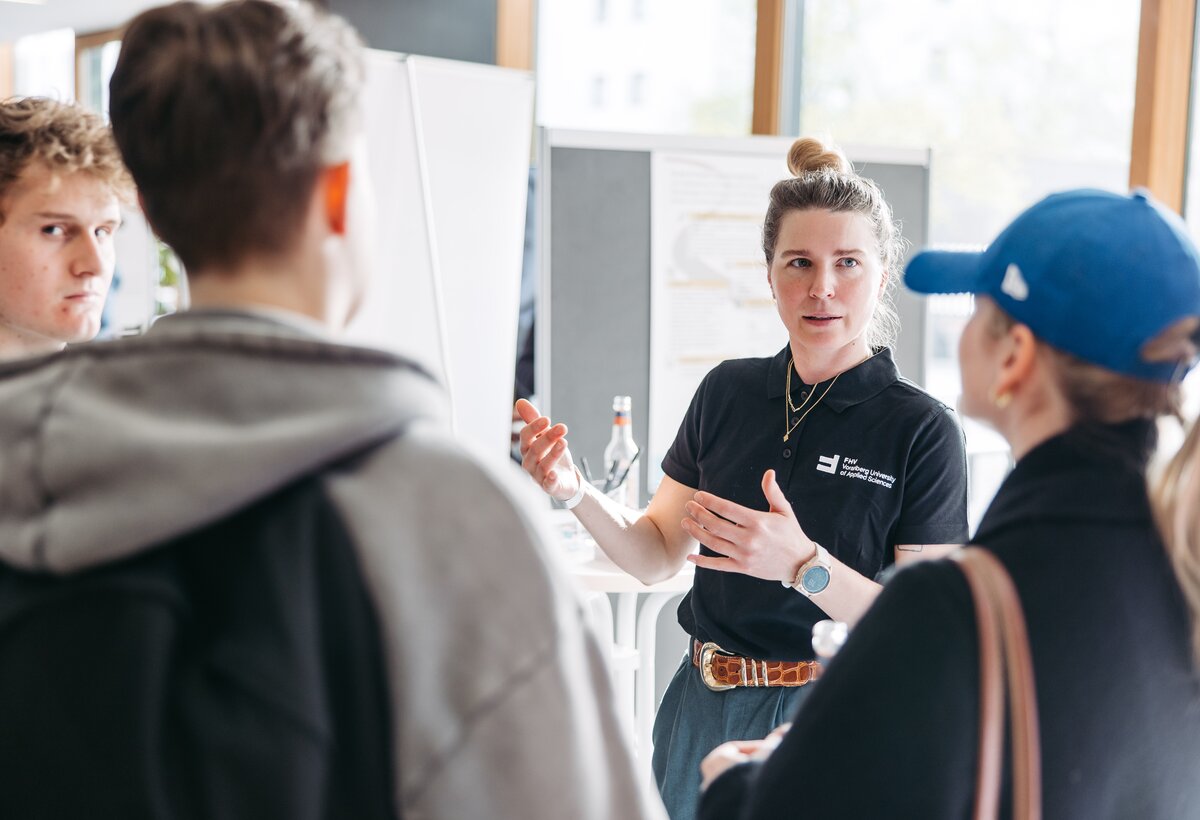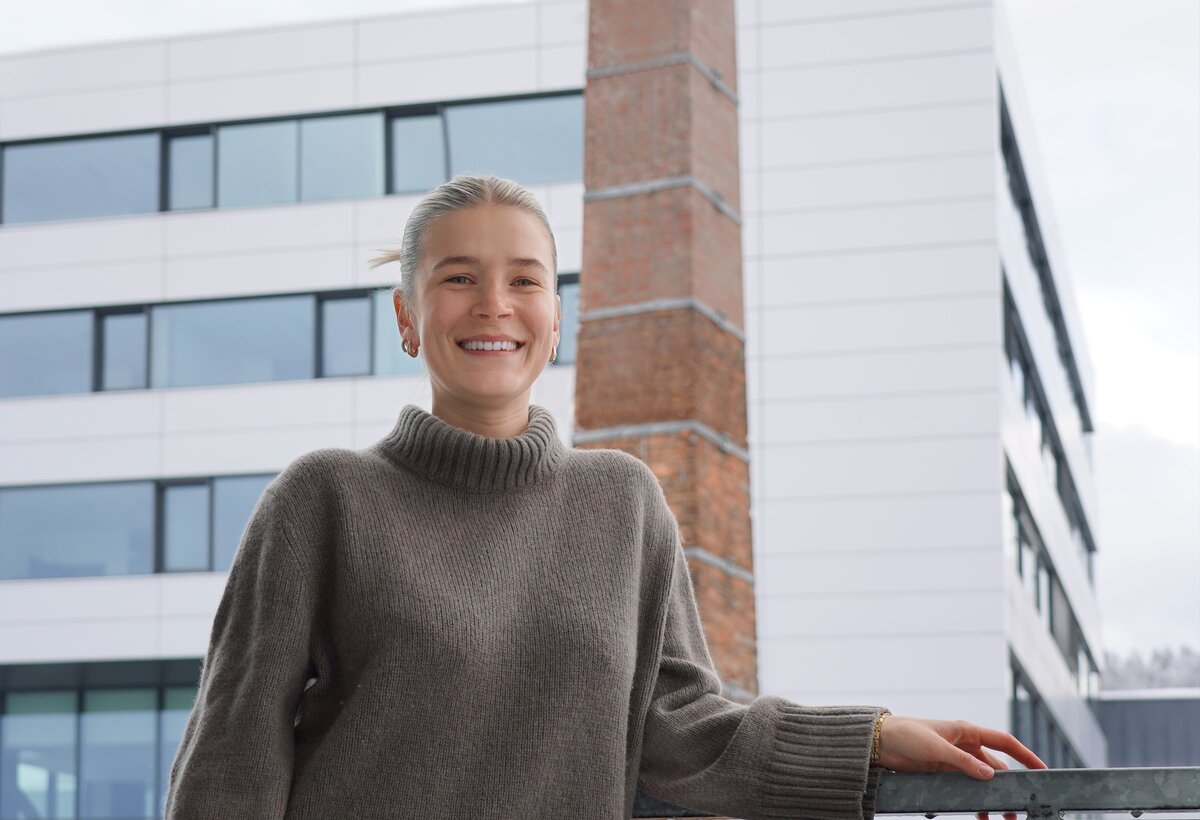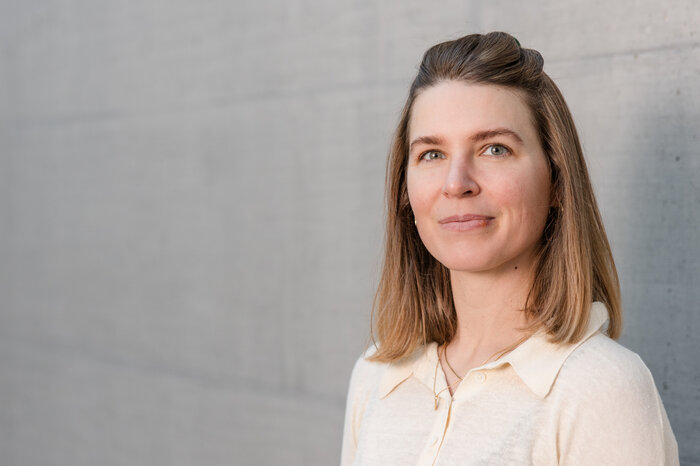Sustainable
Energy Systems
Master's programme, part-time
In the Master's degree in Sustainable Energy Systems, you will be intensively prepared for the challenges and opportunities of the energy transition. You will focus on the energy-efficient use of electricity and heat in buildings, industry and mobility. You will deal with renewable energies, smart grids and the intelligent conversion and storage of Energy.
After completing this degree, you will have an overall understanding of energy management and Engineering and Technology This knowledge will help you to establish sustainability and energy autonomy in companies and contribute to the sustainable design of our future.
The Sustainable Energy Systems degree programme in detail
| Name | Sustainable Energy Systems | |
|---|---|---|
| Level of qualification according to the national and European Qualifications Framework |
Master's degree (2nd study cycle) | |
| Qualification awarded | Master of Science in Engineering, MSc | |
| Field of study according to ISCED-F code | 0713 | |
| Mode of study | Part-time studies, employment is not compulsory | |
| Length of programme (standard period of study) |
4 semesters |
|
| Semester dates | Friday and Saturday all day, individual lectures take place during the week in the evening with video recording plus additional Contextual Studies (Thursday evening and/or block weeks). We recommend a reduction of professional activity to 50 to 70%. | |
| Number of credits | 120 ECTS | |
| Languages of instruction | German, individual courses in English | |
| Mobility window |
Semester abroad possible in the 3rd and 4th semester |
|
| Academic calendar | To the academic calendar | |
| Examination regulations and grading scale | To examination regulations and grading scale | |
| Study-specific equipment | Energy Lab, Electronic Lab, Mechanical Lab | |
| Final examination | Final master's examination | |
| Costs |
Currently no tuition fees, obligatory ÖH contribution |
|
| Start of studies | Mid-September | |
| Specific admission requirements | Completed subject-relevant Bachelor's degree or comparable degree (the programme director decides on comparability) For details see admission requirements |
|
| Application | Apply now If you have any questions about our application deadlines, click here |
This is how the 120 ECTS are divided over four semesters - including compulsory subjects, electives and master's thesis:
Curriculum
Context Studies: Selection of 1 or 2 modules amounting to 6 ETCS ▷ More information.
ECTS: Credit points according to the "European Credit Transfer System". In accordance with international standards, 120 ECTS points must be earned over 4 semesters.
Learning content in detail
CS | Contextual Studies: Selection of 1 or 2 modules amounting to 6 ETCS ▷ More information.
ECTS: Credit points according to the "European Credit Transfer System". In accordance with international standards, 120 ECTS points must be earned over 4 semesters.
Admission to the final examination
Courses: In order to register for the final oral master's examination, all courses in the curriculum must have been successfully completed.
Master's thesis: Positive assessment of the master's thesis. The topic for your master's thesis is developed in the 3rd semester in a seminar in preparation for the master's thesis. The 4th semester is largely exclusively available for writing the thesis. The focus is on the independent development of an energy topic on a scientific basis. The scope of the master's thesis is 22 ECTS.
Master's examination: The Master's degree programme concludes with an oral examination before a committee of a relevant examination board. Examination components include the presentation and defense of the master's thesis, an examination discussion related to the topic of the master's thesis and an examination discussion on curricular course contents.
Recognition of previous academic achievements
Proven academic achievements that have been completed in master's degree programs at colleges and universities can be recognized on an individual basis for individual courses or modules. The decision on recognition lies with the programme director.
Career opportunities after graduation
Energy consultant:in: Advice for companies, local authorities or private individuals on increasing energy efficiency and using renewable energies.
Project management for renewable Energy: Planning, implementation and monitoring of projects in the fields of hydropower, solar energy, biomass, geothermal energy, etc.
Research and development engineer: Working on innovative technologies and solutions to promote sustainable Energy and reduce CO2 emissions.
Energy analyst: Analysis of energy consumption data and development of strategies to optimize energy use.
Environmental and sustainability manager: Development and implementation of strategies and measures to promote sustainability in companies or organizations.
Manager of an energy supply company: Management and strategic orientation of a company that generates or supplies energy, especially in the field of renewable energies.
Teaching and research activities: Working at universities or research institutions to impart knowledge and research new technologies.
Engineer for building technology and energy efficiency: Planning and optimization of energy-efficient buildings and technical systems
Voices about the Sustainable Energy Systems degree programme
Why study Sustainable Energy Systems at the FHV?
- This degree programme deals with one of the most important topics of our time: make your contribution to the energy transition.
- The Master's programmes of the FHV enable an exceptionally interdisciplinary pool of electives ▷ To Contextual Studies
- The proportion of external lecturers from top industrial companies in the region is extremely high
- The structure of the degree programme is aimed at the compatibility of career, studies and family
- The expansion of a regional company and private network allows exchange, foresight and advancement
- Access to knowledge does not always have to be expensive, we currently even offer it for free
Admission and application
The Master's degree programme in Sustainable Energy Systems requires the following qualifications and skills:
- Completion of a relevant bachelor's or diploma degree with a focus on engineering, natural sciences or industrial engineering or
- Completion of an equivalent degree
The course of study must have been completed to the extent of at least 180 ECTS at a recognised domestic or foreign post-secondary educational institution for which admission requires a general university entrance qualification and which is recognized as a post-secondary educational institution under the legislation of the country in which it is based. The relevant bachelor's degree in the subject or equivalent degree program must include the following core subject areas:
The decision on subject relevance or equivalence and thus on admission lies with the programme director. If the equivalence of a degree program is basically given and only individual supplements to the equivalence are missing, the programme director is entitled to combine the determination of equivalence with the requirement of examinations to be taken during the Master's degree program.
Proof of German and English language proficiency at level B2 of the CEFR (Common European Framework of Reference for Languages) is also required.
Information about the general admission requirements (as well as language proficiency requirements)
Application
The following documents are required for your complete online application:
- Cover letter
- Curriculum vitae in tabular format
- Certificates (high school diploma, bachelor's/master's/diploma certificate
or - diploma certificate, transcript of records - overview of achievements) - Passport or identity card
- Current portrait photo
- Proof of professional experience, if applicable
- Proof of language skills
If you are still missing certificates or exam results at the time of your application, you can submit them later.
Do you have questions about studying, admission or the application process? Come to one of our information events! We will be happy to advise you personally and look forward to receiving your application! You can find more information about our application deadlines here.
Application period I from November 15, 2024 to March 1, 2025
- If you submit your application by March 1, 2025, you will benefit from a faster confirmation of your study place
- An early application offers you more planning security and you can design your future today
- As soon as we have received your documents in the online portal, the admission process begins and you will receive feedback on the next steps.
- This is also the application deadline for students from third countries (non-EU, non-EEA, except Switzerland)
Important information: If you are an applicant from a third country (non-EU or non-EEA, with the exception of Switzerland), the application deadline is 1 March. The reason for this is that it sometimes takes longer for international documents to be checked or for lead times to be required to apply for a visa or residence permit.
-> Exception: you already have a "Permanent residence - EU" residence permit - then the additional application deadlines also apply here. The residence permit must be uploaded in the online application as an addition to the proof of citizenship in order for the application to be considered.
Once your application has been received and examined, you will receive an email about the admission procedure. In order to ensure a transparent admissions procedure for study places, places are allocated in the following stages and according to the following criteria:
Evaluation of the application documents (50%):
- Subject relevance and performance orientation of previous training (25%)
- Subject relevance and duration of previous professional experience (15%)
- Quality of the application documents (10%)
Structured individual interview (50%):
- Motivation to study (25%)
- Subject-specific skills: e.g. ability to reflect, learning strategies, communicative skills in German and English (25%)
After the end of the admission procedure, you will receive written notification.
Enrollment at the FHV takes place in September.
You still have questions about studying?
For a personal consultation you can contact us directly:
| Monday to Thursday | 08:30 - 11:30 am |
or by individual appointment.
Information events are held at the FHV throughout the year. You are welcome to come along and get consultation. Here is an overview of upcoming events:











